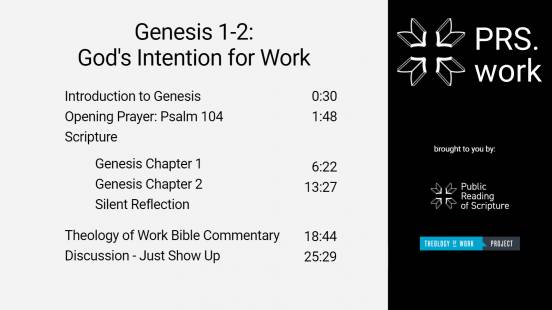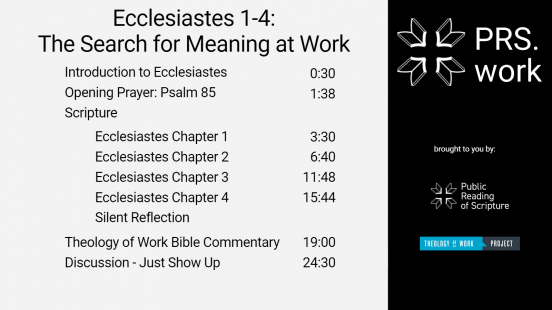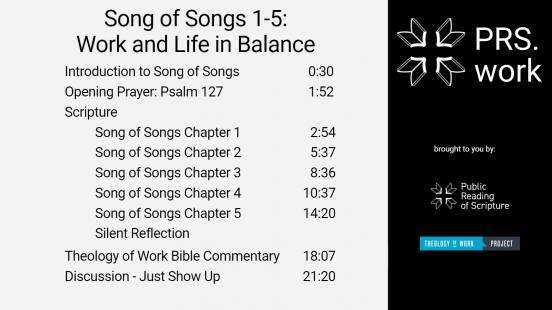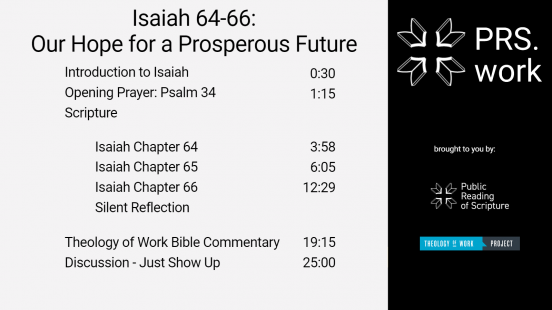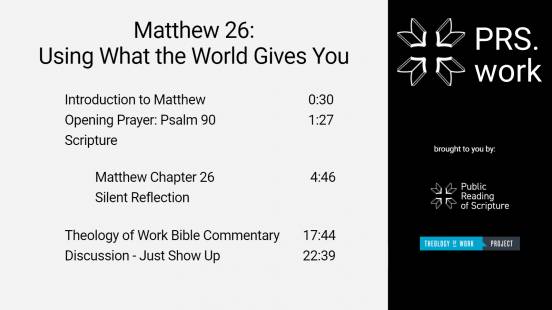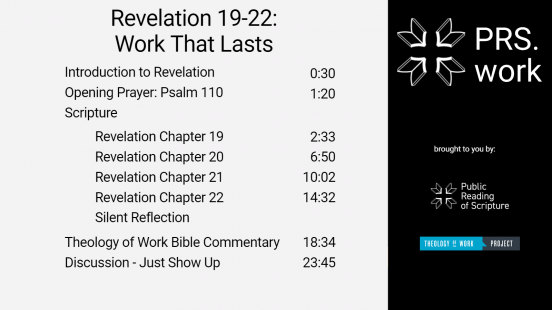Meaning & Value of Work
Why do we work? What is its meaning?
Genesis Chapters 1-2: God’s Intention for Work (26 minutes)
From the beginning God intended human beings to be his junior partners in the work of bringing creation to fulfillment. We are created to work in relationships, relying on God's provision, and respecting God's limits.
Ecclesiastes Chapters 1-4: The Search for Meaning at Work (25 minutes)
Having declared his theme that toil is vanity in Ecclesiastes 1:1-11, the Teacher nonetheless proceeds to explore various possibilities for trying to live life well. He considers, among other things, achievement, pleasure, wealth, and finding joy in God’s gifts. In some of these he does find a certain value, yet nothing seems permanent, and the characteristic conclusion in each section is that work comes to a chasing after wind.
Song of Songs Chapters 1-5: Work and Life in Balance (22 minutes)
Work is an essential element of family life. Yet work must always serve — and never crowd out — the most fundamental element of a marriage: love.
Isaiah Chapters 64-66: Our Hope for a Prosperous Future (25 minutes)
God enjoys the creative roles his people play as they endeavor to excel at what they do under God’s covenant. “They shall plant vineyards and eat their fruit!” (Isaiah 65:21). The problems arise when we try to overturn the Creator/creature distinction by replacing God’s values and provision with our own values and unchecked ambition. This happens when we compartmentalize our work as a secular affair that seems to have nothing to do with the kingdom of God.
Matthew Chapter 26: Using What the World Gives You (23 minutes)
Jesus’ passion is God’s gut-wrenching intervention in the grit and grime of our ragged lives and work. In it, Jesus took the reality of human work – both the good and the harrowing – and not only participated in it, but used it to make something new.
Revelation Chapters 19-22: Work That Lasts (24 minutes)
Babylon and her minions come to a terrifying end as a consequence of their idolatry and wickedness—including their economic practices, as we have seen in earlier sessions in this series. It might seem that any participation in the world economy—or even any local economy—must be so fraught with idolatry that the only solution is to withdraw completely and live alone in the wilderness. But Revelation offers an alternative vision of life together: the New Jerusalem.

